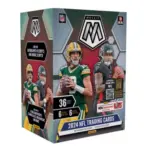This section compares his advanced stats with players at the same position. The bar represents the player’s percentile rank. The longer the bar, the better it is for the player.
Detailed
Grouped
Side
The bars represents the team’s percentile rank (based on QB Rating Against). The longer the bar, the better their pass defense is. The team and position group ratings only include players that are currently on the roster and not on injured reserve. The list of players in the table only includes defenders with at least 3 attempts against them.
vs Giants
Thursday, Nov 28th at 4:30PM
Overall QB Rating Against
95.2
Cornerbacks
108.8
Safeties
86.9
Linebackers
62.0
Lamb has progressed as expected since going 17th overall in the 2020 draft, jumping from 935 yards as a rookie to 1,102 as a sophomore all the way to 1,359 last season. Amari Cooper’s departure from Dallas in a trade paved the way for Lamb to become the unquestioned No. 1 receiver and average 9.2 targets per game — volume that he could repeat even after the Cowboys added Brandin Cooks this spring. Lamb had fairly modest numbers through six games last season, averaging 5.5 catches for 68.2 yards with two touchdowns, then really got going once Dak Prescott returned from an injury Week 7, putting up 6.7 catches for 86.4 yards with seven TDs in the final 11 games. A healthier season from Prescott combined with the offseason departures of TE Dalton Schultz and RB Ezekiel Elliott would help Lamb avoid any problems from increased target competition at WR in the form of Cooks. The 24-year-old is set up well to at least approach his 2022 production, if not exceed it.
Lamb made progress between Years 1 and 2, but it wasn’t the leap forward some expected as he instead settled for incremental gains in a balanced Dallas offense. This year it’s less crowded, after Amari Cooper was traded to Cleveland and Cedrick Wilson left for Miami. The Cowboys added wideouts James Washington and Jalen Tolbert, and they kept both TE Dalton Schultz and WR Michael Gallup, but there’s no longer any question about who’s the No. 1 receiver. Lamb previously filled that role with aplomb at Oklahoma, progressing from 807 yards as a true freshman to 2,485 (and 25 TDs) combined in his sophomore and junior seasons. He then put up mediocre numbers at the 2020 Combine, including a 4.50 40, and fell to Dallas in the middle of Round 1. He’s no speed demon, to be sure, but makes up for it with agility, balance and precision. He’s also a proverbial “plays bigger than he is” guy, having ranked second among WRs with 12 broken tackles last year. Versatility is another plus for Lamb, who has 19 career carries for 158 yards and a TD, in addition to playing both the slot and perimeter. After taking more than 90 percent of his snaps in the slot as a rookie, Lamb dropped to 36 percent in 2021, with his aDOT rising modestly from 9.3 to 10.3. He should see even more work downfield this season, entering Year 3 as the clear No. 1 receiver in an offense that has quality QB and O-line play.
Lamb had a solid rookie year, but it could have been so much better. Through five games with Dak Prescott, Lamb put up a 40-29-433-2 line, numbers which prorate to 128-93-1,386-6. He fell off sharply when Andy Dalton took over, but Prescott is expected to be back for the start of training camp. At 6-2, 189, Lamb is a tall, smooth receiver who runs polished routes for a 22-year-old and has excellent burst when he catches the ball. Lamb probably won’t torch teams downfield that often — 4.50 40 time and two teammates who are bigger deep threats — but he’s ideal for the slot where the Cowboys used him most of the time. The biggest issue for Lamb is the competition for targets. Both Amari Cooper and Michael Gallup had north of 100 last year, but it’s worth noting Lamb seemed to be Prescott’s favorite look early last season, when they barely even had time to develop a rapport.
Lamb was a monster at Oklahoma the last two years with 26 TDs, including a rushing one, on 184 targets in 27 games. And lest one think his 2018 season was due to having last year’s No. 1 pick Kyler Murray at quarterback, Lamb’s 2019 season was even bigger and more efficient with Jalen Hurts. At 6-2, 189, Lamb is tall and rangy with elite ball skills and excellent hands. He’s elusive after the catch, quick in and out of breaks and dangerous in open space. Despite not being a true burner, he’ll make plays down the field by tracking the ball in the air and going over top of smaller defenders. Lamb’s route running should improve in the pros, and he has the physical tools and football instincts to be an elite NFL receiver. Landing in Dallas with the 17th pick wasn’t ideal – the Cowboys have two established receivers in Michael Gallup and Amari Cooper. But Randall Cobb’s 83 targets have left for Houston, the Cowboys had the 10th-most pass attempts last year, and they don’t have an established receiving threat at tight end. There’s also a good chance the team throws more passes in the red zone under new coach Mike McCarthy.


